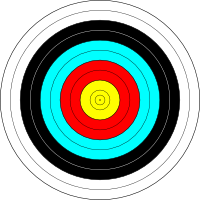Associations to the word «Mark»
Noun
- Anniversary
- Centenary
- Twain
- Milestone
- Cairn
- Quotation
- Plaque
- Obelisk
- Bassist
- Pencil
- Marking
- Jubilee
- Keyboardist
- Buoy
- Beginning
- Drummer
- Culmination
- Antony
- Vocalist
- Webber
- Epoch
- Inauguration
- Taper
- Commencement
- Transition
- Knowles
- Departure
- Cavendish
- Exclamation
- Emergence
- Headland
- Boundary
- Evangelist
- Celebration
- Foray
- Shift
- Comeback
- Harmon
- Watershed
- Zenith
- Gospel
- Luke
- Hatfield
- Clemens
- Matthew
- Feldman
- Turning
- Return
- Extremity
- Hiatus
- Spot
- Era
- Cleopatra
- Festivity
- Dominance
- Resurgence
- Skid
- Adulthood
- Nestor
- Cain
- Latham
- Radcliffe
- Debut
- Robson
- Lighthouse
- Collaboration
- Burnett
- Ceremony
- Thrash
- Advent
- Trademark
- Schultz
- Ingram
- Reunification
- Levin
Adjective
Pictures for the word «Mark»
Wiktionary
MARK, noun. (heading) Boundary, land within a boundary.
MARK, noun. (obsolete) A boundary; a border or frontier. [9th-19th c.]
MARK, noun. (obsolete) A boundary-post or fence. [13th-18th c.]
MARK, noun. A stone or post used to indicate position and guide travellers. [from 14th c.]
MARK, noun. (archaic) A type of small region or principality. [from 18th c.]
MARK, noun. (historical) A common, or area of common land, especially among early Germanic peoples. [from 19th c.]
MARK, noun. (heading) Characteristic, sign, visible impression.
MARK, noun. An omen; a symptomatic indicator of something. [from 8th c.]
MARK, noun. A characteristic feature. [from 16th c.]
MARK, noun. A visible impression or sign; a blemish, scratch, or stain, whether accidental or intentional. [from 9th c.]
MARK, noun. A sign or brand on a person. [from 10th c.]
MARK, noun. A written character or sign. [from 10th c.]
MARK, noun. A stamp or other indication of provenance, quality etc. [from 11th c.]
MARK, noun. (obsolete) Resemblance, likeness, image. [14th-16th c.]
MARK, noun. A particular design or make of an item (now usually with following numeral). [from 15th c.]
MARK, noun. A score for finding the correct answer, or other academic achievement; the sum of such point gained as out of a possible total. [from 19th c.]
MARK, noun. (heading) Indicator of position, objective etc.
MARK, noun. A target for shooting at with a projectile. [from 13th c.]
MARK, noun. An indication or sign used for reference or measurement. [from 14th c.]
MARK, noun. The target or intended victim of a swindle, fixed game or con game. [from 18th c.]
MARK, noun. (obsolete) The female genitals. [16th-18th c.]
MARK, noun. (Australian rules football) A catch of the ball directly from a kick of 10 metres or more without having been touched in transit, resulting in a free kick. [from 19th c.]
MARK, noun. (sports) The line indicating an athlete's starting-point. [from 19th c.]
MARK, noun. A score for a sporting achievement. [from 20th c.]
MARK, noun. An official note that is added to a record kept about someone's behavior or performance.
MARK, noun. (cooking) A specified level on a scale denoting gas-powered oven temperatures. [from 20th c.]
MARK, noun. Limit or standard of action or fact.
MARK, noun. Badge or sign of honour, rank, or official station.
MARK, noun. (archaic) Preeminence; high position.
MARK, noun. (logic) A characteristic or essential attribute; a differential.
MARK, noun. (nautical) One of the bits of leather or coloured bunting placed upon a sounding line at intervals of from two to five fathoms. (The unmarked fathoms are called "deeps".)
MARK, noun. (heading) Attention.
MARK, noun. (archaic) Attention, notice. [from 15th c.]
MARK, noun. Importance, noteworthiness. (Generally in postmodifier “of mark”.) [from 16th c.]
MARK, noun. (obsolete) Regard; respect.
MARK, verb. To put a mark upon; to make recognizable by a mark.
MARK, verb. To indicate in some way for later reference.
MARK, verb. To take note of.
MARK, verb. To blemish, scratch, or stain.
MARK, verb. To indicate the correctness of and give a score to an essay, exam answers, etc.
MARK, verb. To keep account of; to enumerate and register.
MARK, verb. (Australian Rules football) To catch the ball directly from a kick of 15 metres or more without having been touched in transit, resulting in a free kick.
MARK, verb. (sports) To follow a player not in possession of the ball when defending, to prevent them receiving a pass easily.
MARK, verb. (golf) To put a marker in the place of one's ball.
MARK, verb. (singing) To sing softly, and perhaps an octave lower than usual, in order to protect one's voice during a rehearsal.
MARK, noun. A measure of weight (especially for gold and silver), once used throughout Europe, equivalent to 8 oz.
MARK, noun. (now historical) An English and Scottish unit of currency (originally valued at one mark weight of silver), equivalent to 13 shillings and fourpence.
MARK, noun. Any of various European monetary units, especially the base unit of currency of Germany between 1948 and 2002, equal to 100 pfennigs.
MARK, noun. A mark coin.
MARK, verb. (imperative) (marching) Alternative form of march (said to be easier to pronounce while giving a command).
MARK, proper noun. A male given name.
MARK, proper noun. Mark the Evangelist, also called John Mark, the first patriarch of Alexandria, credited with the authorship of the Gospel of Mark.
MARK, proper noun. (biblical) The Gospel of St. Mark, a book of the New Testament of the Bible. Traditionally the second of the four gospels.
MARK, abbreviation. (galaxy) Abbreviation of Markarian.
MARK AND SWEEP, noun. (computing) A form of garbage collection in which every accessible object in memory is flagged, leaving unflagged only those that are no longer reachable and can thus be discarded.
MARK DOWN, verb. To reduce the price of.
MARK DOWN, verb. To write a memorandum about.
MARK DOWN, verb. To subtract marks (points) for an error.
MARK DOWN, verb. To write down.
MARK OF CAIN, noun. A stigma of shame
MARK OFF, verb. (transitive) To separate by or as with a boundary line.
MARK OFF, verb. (transitive) To indicate as dealt with, as on a list.
MARK OUT, verb. (transitive) to set the boundaries of an area
MARK OUT, verb. (transitive) to classify
MARK OUT, verb. (transitive) to obliterate or cancel with a mark
MARK TIME, verb. (idiomatic) (marching) To march in place, while still in step with the beat.
MARK TIME, verb. (figuratively) To stop making progress temporarily.
MARK TO MARKET, noun. Alternative spelling of mark-to-market
MARK TO MARKET, verb. (accounting) (finance) To value an asset at its current actual or estimated market price.
MARK TO MARKETS, noun. Plural of mark to market
MARK TO MODEL, noun. (accounting) A valuation or valuation method that assigns a value to an asset based on a model of its value.
MARK TO MODEL, verb. (accounting) To value an asset at a modeled estimate of its market value or of some other approved valuation.
MARK TREE, noun. A percussion instrument consisting of many small chimes hanging from a bar, played by sweeping a finger or stick across them.
MARK TWAINISH, adjective. Of or relating to Mark Twain or his writing style.
MARK UP, verb. To increase the price of something between its wholesale and retail phase.
MARK UP, verb. To add coding to text so that it will display properly on a computer.
Dictionary definition
MARK, noun. A number or letter indicating quality (especially of a student's performance); "she made good marks in algebra"; "grade A milk"; "what was your score on your homework?".
MARK, noun. A distinguishing symbol; "the owner's mark was on all the sheep".
MARK, noun. A reference point to shoot at; "his arrow hit the mark".
MARK, noun. A visible indication made on a surface; "some previous reader had covered the pages with dozens of marks"; "paw prints were everywhere".
MARK, noun. The impression created by doing something unusual or extraordinary that people notice and remember; "it was in London that he made his mark"; "he left an indelible mark on the American theater".
MARK, noun. A symbol of disgrace or infamy; "And the Lord set a mark upon Cain"--Genesis.
MARK, noun. Formerly the basic unit of money in Germany.
MARK, noun. Apostle and companion of Saint Peter; assumed to be the author of the second Gospel.
MARK, noun. A person who is gullible and easy to take advantage of.
MARK, noun. A written or printed symbol (as for punctuation); "his answer was just a punctuation mark".
MARK, noun. A perceptible indication of something not immediately apparent (as a visible clue that something has happened); "he showed signs of strain"; "they welcomed the signs of spring".
MARK, noun. The shortest of the four Gospels in the New Testament.
MARK, noun. An indication of damage.
MARK, noun. A marking that consists of lines that cross each other.
MARK, noun. Something that exactly succeeds in achieving its goal; "the new advertising campaign was a bell ringer"; "scored a bull's eye"; "hit the mark"; "the president's speech was a home run".
MARK, verb. Attach a tag or label to; "label these bottles".
MARK, verb. Designate as if by a mark; "This sign marks the border".
MARK, verb. Be a distinctive feature, attribute, or trait; sometimes in a very positive sense; "His modesty distinguishes him from his peers".
MARK, verb. Mark by some ceremony or observation; "The citizens mark the anniversary of the revolution with a march and a parade".
MARK, verb. Make or leave a mark on; "the scouts marked the trail"; "ash marked the believers' foreheads".
MARK, verb. To accuse or condemn or openly or formally or brand as disgraceful; "He denounced the government action"; "She was stigmatized by society because she had a child out of wedlock".
MARK, verb. Notice or perceive; "She noted that someone was following her"; "mark my words".
MARK, verb. Mark with a scar; "The skin disease scarred his face permanently".
MARK, verb. Make small marks into the surface of; "score the clay before firing it".
MARK, verb. Establish as the highest level or best performance; "set a record".
MARK, verb. Make underscoring marks.
MARK, verb. Remove from a list; "Cross the name of the dead person off the list".
MARK, verb. Put a check mark on or near or next to; "Please check each name on the list"; "tick off the items"; "mark off the units".
MARK, verb. Assign a grade or rank to, according to one's evaluation; "grade tests"; "score the SAT essays"; "mark homework".
MARK, verb. Insert punctuation marks into.
Wise words
Every once in a while, you let a word or phrase out and you
want to catch it and bring it back. You can't do that. It's
gone, gone forever.



